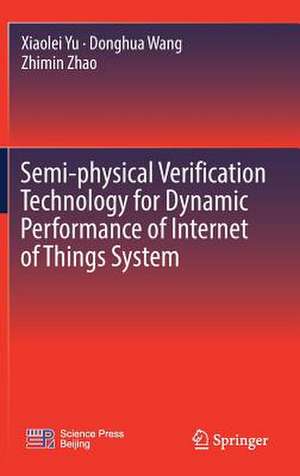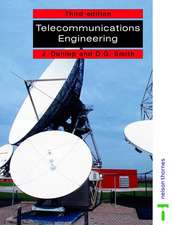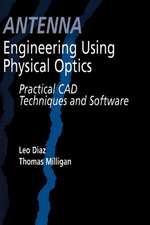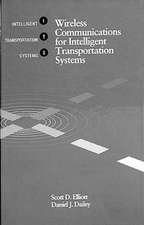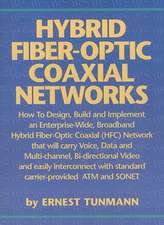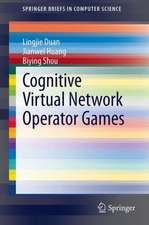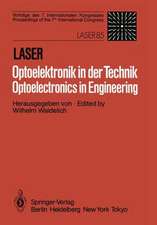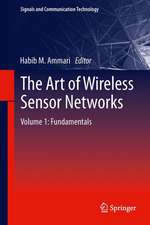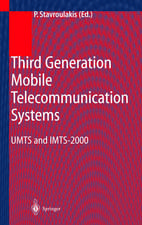Semi-physical Verification Technology for Dynamic Performance of Internet of Things System
Autor Xiaolei Yu, Donghua Wang, Zhimin Zhaoen Limba Engleză Hardback – 11 sep 2018
| Toate formatele și edițiile | Preț | Express |
|---|---|---|
| Paperback (1) | 638.76 lei 6-8 săpt. | |
| Springer Nature Singapore – 23 dec 2018 | 638.76 lei 6-8 săpt. | |
| Hardback (1) | 644.95 lei 6-8 săpt. | |
| Springer Nature Singapore – 11 sep 2018 | 644.95 lei 6-8 săpt. |
Preț: 644.95 lei
Preț vechi: 758.77 lei
-15% Nou
Puncte Express: 967
Preț estimativ în valută:
123.42€ • 131.97$ • 102.90£
123.42€ • 131.97$ • 102.90£
Carte tipărită la comandă
Livrare economică 18 aprilie-02 mai
Preluare comenzi: 021 569.72.76
Specificații
ISBN-13: 9789811317583
ISBN-10: 9811317585
Pagini: 223
Ilustrații: XV, 246 p. 158 illus., 100 illus. in color.
Dimensiuni: 155 x 235 mm
Greutate: 0.54 kg
Ediția:1st ed. 2019
Editura: Springer Nature Singapore
Colecția Springer
Locul publicării:Singapore, Singapore
ISBN-10: 9811317585
Pagini: 223
Ilustrații: XV, 246 p. 158 illus., 100 illus. in color.
Dimensiuni: 155 x 235 mm
Greutate: 0.54 kg
Ediția:1st ed. 2019
Editura: Springer Nature Singapore
Colecția Springer
Locul publicării:Singapore, Singapore
Cuprins
Research progress of semi-physical verification technology based on photoelectric sensing.- Multi-antenna optimal receiving theory and semi-physical verification of RFID-MIMO system.- Thermodynamic analysis and semi-physical verification of the effect of temperature on dynamic performance of RFID.- Adaptive analysis and semi - physical verification of RFID multi-tag geometric distribution based on Fisher matrix.- Application of artificial neural network in RFID multi-tag distribution optimization and semi - physical verification.- Optimal distribution and semi-physical verification of RFID multi-tag based on image processing.- Application of semi-physical verification technology in other fields of internet of things.
Notă biografică
Xiaolei Yu obtained his doctorate degree in Electrical and Electronic Engineering as a joint student of the University of Melbourne and Nanjing University of Aeronautics and Astronautics in 2011. He is now an Assistant Professor at Nanjing University of Aeronautics and Astronautics as well as the Chief Executive Engineer of China National RFID Product Quality Supervision and Testing Center (Jiangsu). His research interests include intelligent sensor networks, signal detection technology, adaptive algorithms, and image processing algorithms. He holds 15 patents and has published more than 40 academic papers, including 20 SCI papers in leading academic journals and international conferences.
Textul de pe ultima copertă
This book combines semi-physical simulation technology with an Internet of Things (IOT) application system based on novel mathematical methods such as the Fisher matrix, artificial neural networks, thermodynamic analysis, support vector machines, and image processing algorithms. The dynamic testing and semi-physical verification of the theory and application were conducted for typical IOT systems such as RFID systems, Internet of Vehicles systems, and two-dimensional barcode recognition systems. The findings presented are of great scientific significance and have wide application potential for solving bottlenecks in the development of RFID technology and IOT engineering. The book is a valuable resource for postgraduate students in fields such as computer science and technology, control science and engineering, and information science. Moreover, it is a useful reference resource for researchers in IOT and RFID-related industries, logistics practitioners, and system integrators.
Caracteristici
Is the first book available on physical anti-collision in the field of RFID applications Covers the application of semi-physical verification technology in dynamic performance tests on IOT systems Includes the latest advances in semi-physical verification techniques based on photoelectric sensing in both military and civil areas Presents not only the basic theory of photoelectric sensing, but also the design for dynamic detection systems and related experimental examples
